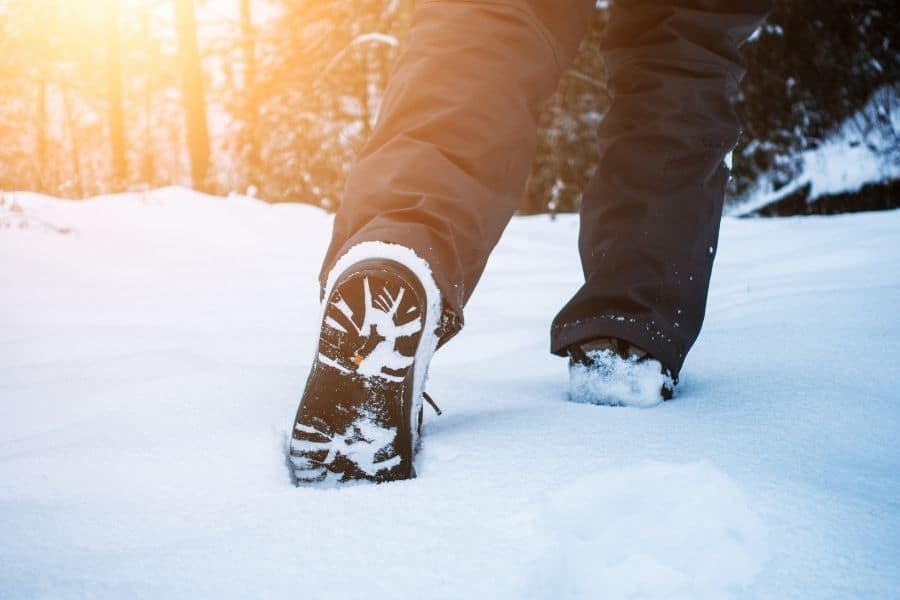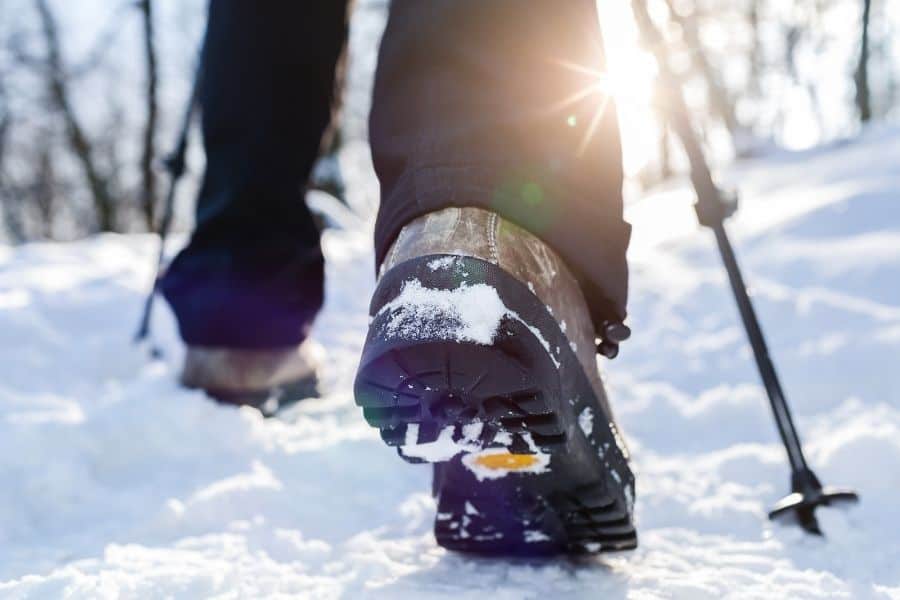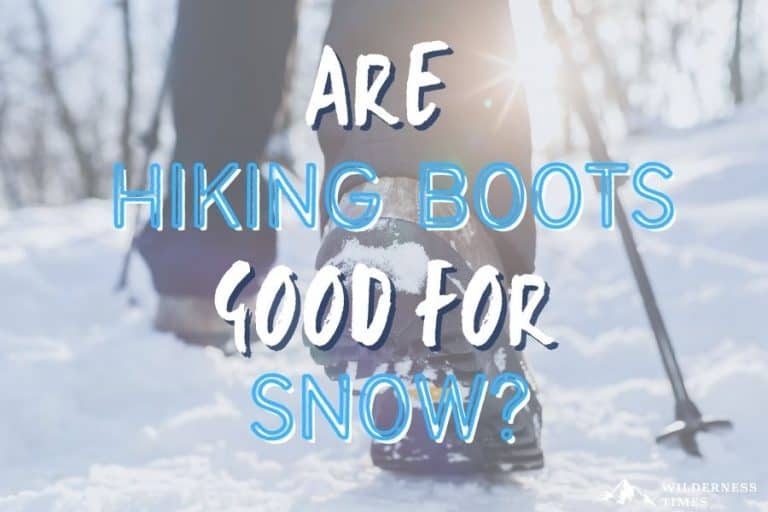A special thanks to Jakob from Headless Nomad for writing this post for us. Jakob is an avid outdoorsman and backpacker who started HeadlessNomad to help people become one with nature and relieve stress and anxiety. We here at Wilderness Times are all about that!
We have to give it to you hardcore hikers who will hike wind, rain or snow!
When it comes to hiking, though, snow (and ice) is a factor that can alter just about everything.
From getting your feet wet to making things a lot slicker and colder, hiking in the snow is different than hiking on a hot, summer day.
So are hiking boots good for snow? The best way to answer this question is to analyze the key attributes that hikers look for in their hiking boots. Read on!
Table of Contents
ToggleAre hiking boots good for snow?

Let’s talk about Hiking Boots for a second. They are boots…designed…for hiking. Enough said? No, because not all of them are made the same.
From a general perspective, they’re generally designed for all-purpose hiking and climbing.
Most will have similar features such as water resistance or full waterproofness, outsoles designed to provide traction on rough terrains such as rocks and roots, and optimal breathability to help in the problem of moisture buildup.
The best designs will also be lightweight, comfortable, and flexible to allow you to wear them for long periods without irritation. But not all hiking boots are designed the same and with the same features and technology.
So, what does that mean when you then factor in the snow? Well, let’s find out by breaking down some very critical factors.
Insulation
Snow equals cold, and the last thing you want is for your feet to freeze while you’re hiking in the snow.
So, if you have a pair of hiking boots that you like to wear in the summer because they do such a good job of allowing your feet to breathe, they probably won’t work very well in the snow.
But there are plenty of options on the market that will offer optimal insulation for cold-weather hikes. You just have to buy the right boots that will keep your feet warm in the snow.
Comfort
Quite honestly, when it comes to comfort, it’s kind of a personal preference. Don’t get us wrong, you can find some hiking boots that are universally known for having really good or fairly bad comfort. The alternative to using a pair in the snow would be to use a pair of snow boots.
When comparing the two in the comfort department, snow boots are generally quite bulky and heavy. This makes sense seeing how they are designed to handle the snow.
So, yeah, with hiking boots in the snow, comfort’s not going to be a dealbreaker as it’s really going to be the same if you were trying to find a pair for any other season (outside of breathability, of course).
Traction

Snow and ice are just different beasts when it comes to traction. And when answering the question of are hiking boots good for snow, this section here is as important a section as any.
Hiking boots in general, are designed to have sufficient traction on offroad terrains.
Outsole designs can differ from their grip to their durability, you name it. But if you’re planning to hike and want the most optimal traction possible, snow boots are probably going to be the best bet.
That said, if you buy hiking boots for winter weather, make sure the outsoles can hold up to snow, ice, and that type of slippery and slick terrain. There are those out there that can.
Waterproofness
When you’re literally trekking through snow, you need a pair of waterproof boots to hike with. Period.
Water-resistance isn’t going to get the job done in the snow, as it’s ideal to have a pair of fully waterproof boots unless you want to be hiking with wet feet.
Designers do make fully waterproof hiking boots, but they often don’t come up very high on your calves. On the contrary, something like a snow boot is going to offer waterproofness but is also going to come up higher on your leg.
Hiking boots designed with technology such as Gore-Tex are the best to go with to obtain waterproofness in the snow, but just be aware that you may need to pair them with some gaiters for optimal snow protection.
Weight
It’s been a theme of this post that not all hiking boots are designed to be the same, so it’s not much of a surprise that some will weigh more than others. Though they’re typically designed with weight in mind as thick and bulky boots can get really tiresome to have on your feet during hikes.
Even though you can actually hike in steel toe boots, it’s not something the majority of people prefer.
Clearly, for winter weather, features such as waterproofness, insulation, and rugged outsoles can make them weigh a little more. However, when compared to snow boots, even the best designed for winter will oftentimes weigh a little less.
So, are hiking boots good for snow?
Technically, we haven’t answered this question yet, have we? We don’t like to wait this long to answer a question, but this one really needed some in-depth analysis.
So, now with all that done, hiking boots can be good for snow… it just depends on the pair you buy.
Final thoughts
At the end of the day, you need to ensure that your hiking boots are waterproof, can handle the slick nature of snow and ice, and have enough insulation to keep your feet warm.
Additionally, you can still look for a pair that offer comfort, support, and optimal weight.
Don’t get us wrong, you can certainly find those that will not perform very well in the winter and in the snow. It all comes down to the pair that you get.
With that question now answered and covered, here’s another one that’s nearly just as interesting. Can you hike in jeans for longer distances? Curious about that one? Go ahead and click that link to get the answer!


